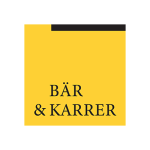Two years ago, Bär & Karrer wrote an article providing an overview on several recent legal developments regarding ESG matters in Switzerland. The new ESG due diligence and reporting obligations that were highlighted in this context were introduced into the Swiss Code of Obligations in January 2022 and started to apply for most companies since January this year.
Given there are no Swiss precedents that could be used as guidance, and provided that particularly the Swiss legislation on due diligence and reporting obligations with regard to tin, tantalum, tungsten or gold from conflict-affected and high-risk areas (conflict minerals) and child labour has, albeit inspired by EU Regulation and international guidelines, a distinct so-called ‘Swiss finish’, it may be difficult for companies to ensure compliance with these new provisions.
In this context, this update focuses on five misconceptions to be avoided in connection with the new rules on conflict minerals and child labour in the form of an FAQ.
Our company does not have production facilities in developing countries, hence the rules on child labour do not apply to us, correct?
It is a common misconception that the rules on due diligence and disclosure regarding child labour are only relevant for companies with production facilities in developing countries or which work with suppliers from certain regions in the world.
On the contrary, the rules regarding child labour probably should be of concern for many companies in Switzerland. However, there are certain exemptions:
Compliance with certain internationally recognised equivalent regulations fully exempts companies from their due diligence and reporting obligations (Ordinance on Due Diligence and Transparency in relation to Minerals and Metals from Conflict-Affected Areas and Child Labour [DDTrO]). Note that the reference to internationally recognised equivalent regulations in Annex 2 of the DDTrO is exhaustive and requires that such regulations are applied in their entirety.
Updates of such international regulations are generally not included in the DDTrO (although compliance with such amended versions of the regulations in Annex 2 of the DDTrO should also exempt companies from their due diligence and reporting duties). It has yet to be clarified whether compliance with other international regulations that can be considered equivalent with the Swiss regulations allow for an exemption from the Swiss rules.
The child labour-related due diligence and reporting requirements generally applies to companies that are large enough and exceed two out of three of the following criteria over two successive financial years (non-SMEs):
A balance sheet total of CHF 20 million;
Revenues of CHF 40 million; or
250 full time employees on annual average.
In contrast, if there is an evident involvement of child labour, the due diligence and reporting obligations also apply for smaller companies.
Companies that are included in a consolidated reporting of a controlling legal entity may be exempt from reporting obligations.
Non-SMEs whose seat, head office or principal place of business is in Switzerland that do not comply with certain internationally recognised equivalent regulations, and are not included in a consolidated reporting, must comply with the due diligence obligations throughout their supply chain. They must also produce a respective report if they offer products or services if there is a reasonable suspicion that they have been manufactured or provided using child labour.
This requires assessing whether there are reasonable suspicions of child labour in the supply chain, unless a company qualifies as a 'low-risk undertaking' as defined in the DDTrO. It is therefore important to note that all larger Swiss companies must perform at least the initial risk assessment on an annual basis and document the findings. However, such findings do not have to be published.
Thus, effectively, companies need to establish a list of all countries they operate in, where they purchase or manufacture products in accordance with the indication of origin ('made in'), and where they primarily procure or provide services.
They then need to verify on an annual basis each country’s rating in the UNICEF Children's Rights in the Workplace Index and document their findings. The due diligence and reporting obligations do not apply for countries with the rating ‘basic’ (unless there is an evident involvement of child labour) or for countries with the rating ‘enhanced’ or ‘heightened’ when there is no reasonable suspicion of child labour.
This annual risk assessment will likely become much less burdensome once the initial processes are in place. This is also presuming that companies establish a process for adding or removing countries from the risk assessment as their supply chain changes over time.
The group already publishes a report regarding child labour and/or conflict minerals – do we have to verify whether it meets the Swiss standards?
Companies that are required to prepare consolidated financial statements must also prepare a consolidated report on child labour and/or conflict minerals. Legal entities that are included in such consolidated reports in accordance with the Swiss regulation are fully exempt from a separate reporting obligation for child labor and/or conflict minerals.
Additionally, companies that are controlled by a legal entity abroad which prepares an equivalent report are also exempt. However, such an exemption only applies if the foreign report is "equivalent" with Swiss law. The law does not define what "equivalent" means in this context. It is safe to assume that at least producing a report in compliance with the internationally recognised standards as mentioned in Annex 2 of DDTrO will suffice.
Note that Swiss companies that are not required to prepare a separate report must indicate in the notes to their financial statements which other legal entity's report they are included in, and they must publish such report.
Do all reports have to be reviewed by an external auditor?
No. The only report which must be assessed by an independent auditor is the report on the due diligence regarding conflict minerals and metals. The auditor must give a so-called “negative assurance”, which means it must assess whether there are any indications that the due diligence obligations have not been fulfilled.
The other reports (such as on non-financial matters or the due diligence regarding child labour) do not require an audit. However, it is possible to obtain a voluntary audit or to have an assurance performed on these reports. This can be a protective measure for the board of directors and the individuals involved in preparing the reports from criminal liability. Audit firms are increasingly offering such services.
Can we rely on assurances from suppliers to fulfill our due diligence obligations regarding conflict minerals and/or child labour?
No. Only relying on assurances from suppliers is not sufficient. If the due diligence obligations apply to a company, such diligence includes the following measures: the company must implement a management system which particularly serves to identify the risks regarding conflict minerals or child labour. Specifically, companies are asked to:
(i) Have a supply chain policy in place;
(ii) Implement a traceability system regarding conflict minerals or child labour;
(iii) Have a risk management plan for the risks that have been identified; and
(iv) Establish, as an early warning mechanism for risk identification, a reporting procedure that easily allows all interested parties to raise reasonable concerns about the existence of a potential or actual adverse impact related to conflict minerals or child labour.
Can we integrate our report on conflict minerals and/or child labour in the report on non-financial matters?
Yes. The report on conflict minerals and/or child labour must be published in a Swiss national language or English within six months of the end of the financial year. This means that the first reports will have to be published until June 2024. The report must remain publicly available for at least ten years. Companies that also have to publish a report on non-financial matters (such as large listed and FINMA regulated companies) can integrate the report on conflict minerals and/or child labour into the report on non-financial matters. Note that this means that shareholders will likely vote on such reports at the annual general meeting (unless the reports on conflict minerals and/or child labour are, while being integrated in the report on non-financial matters, presented as separate chapters that can easily be carved out from the vote by the general meeting).


